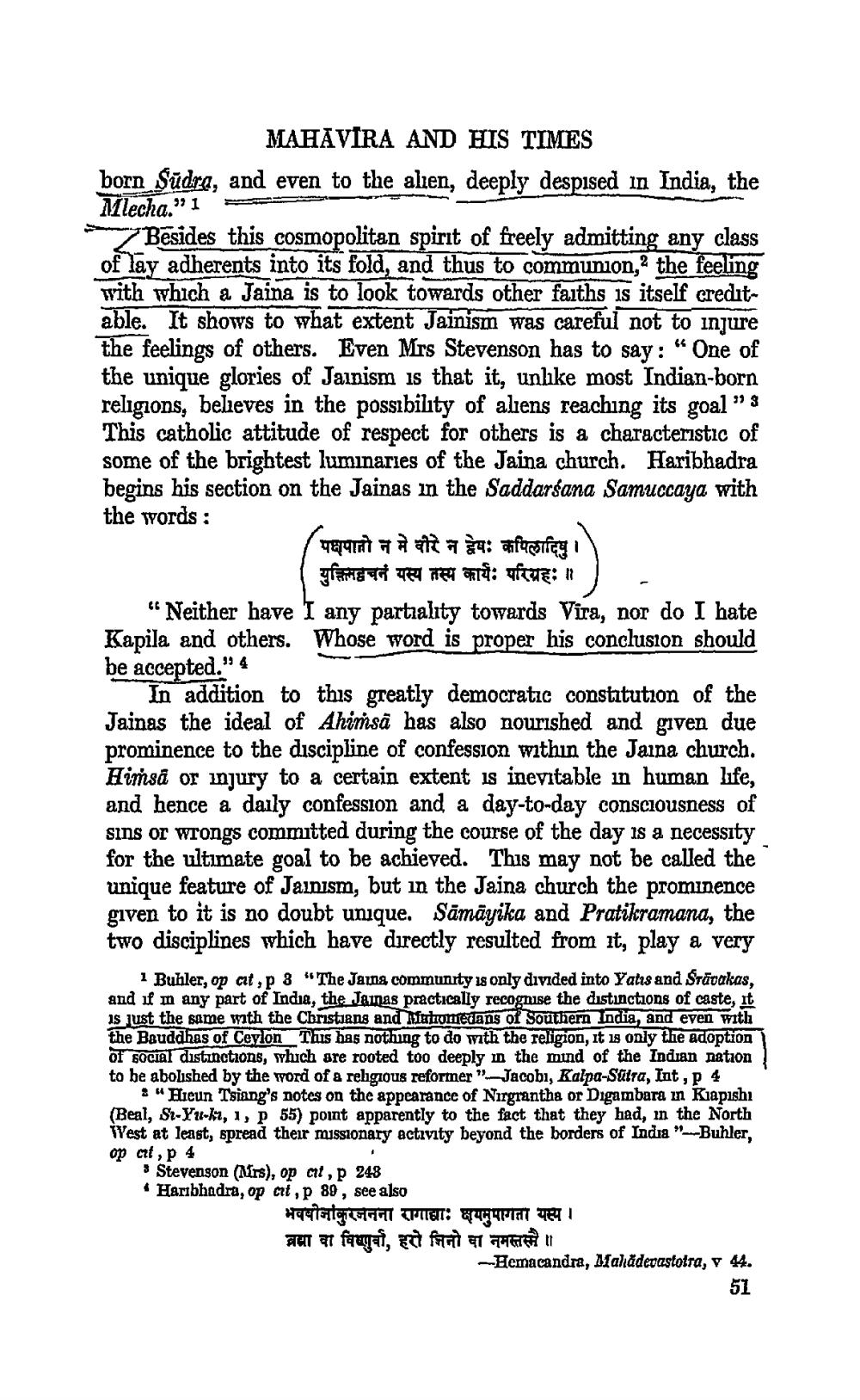________________ MAHAVIRA AND HIS TIMES born Sudra, and even to the alien, deeply despised in India, the Mlecha." I Besides this cosmopolitan spirit of freely admitting any class of lay adherents into its fold, and thus to communion, the feeling with which a Jaina is to look towards other faiths is itself creditable. It shows to what extent Jainism was careful not to injure the feelings of others. Even Mrs Stevenson has to say: "One of the unique glories of Jainism is that it, unlike most Indian-born religions, believes in the possibility of aliens reaching its goal " 3 This catholic attitude of respect for others is a characteristic of some of the brightest luminaries of the Jaina church. Haribhadra begins his section on the Jainas in the Saddarsana Samuccaya with the words: पक्ष्यानो न मे वौरे न द्वेषः कपिलादिषु / युक्तिमद्वचनं यस्य तस्य कार्यः परिग्रहः // "Neither have I any partiality towards Vira, nor do I hate Kapila and others. Whose word is proper his conclusion should be accepted." 4 In addition to this greatly democratic constitution of the Jainas the ideal of Ahimsa has also nourished and given due prominence to the discipline of confession within the Jaina church. Himsa or injury to a certain extent is inevitable in human life, and hence a daily confession and a day-to-day consciousness of sins or wrongs committed during the course of the day is a necessity for the ultimate goal to be achieved. This may not be called the unique feature of Jainism, but in the Jaina church the prominence given to it is no doubt unique. Samayika and Pratikramana, the two disciplines which have directly resulted from it, play a very 1 Buhler, op at,p 8 "The Jains community is only divided into Yatis and Sravakas. and if m any part of India, the Jamnas practically recognise the distinctions of caste, it is just the same with the Christians and Aittomedans of Southern India, and even math the Bauddhas of Ceylon Tus has nothing to do with the religion, it is only the adoption of social distinctions, which are rooted too deeply in the mund of the Indian nation to be abolished by the word of a religious reformer " Jacobi, Kalpa-Sara, Int ,P 4 "Hieun Tsiang's notes on the appearance of Nirgrantha or Digambara i Kiapishi (Beal, S-71-, 1, p65) point apparently to the fact that they had, m the North West at least, spread their missionary activity beyond the borders of India "--Buhler, op el, P 4 Stevenson (Mrs), op cit, 248 * Haribhadra, op cit, 89, see also भवषीजांकुरजनना रागाद्याः यमुपागता यस्म / ब्रह्मा वा विष्णुर्वा, हरो जिनो था नमस्तस्मै / -Hemacandra, Diahadevastotra, v 44.




